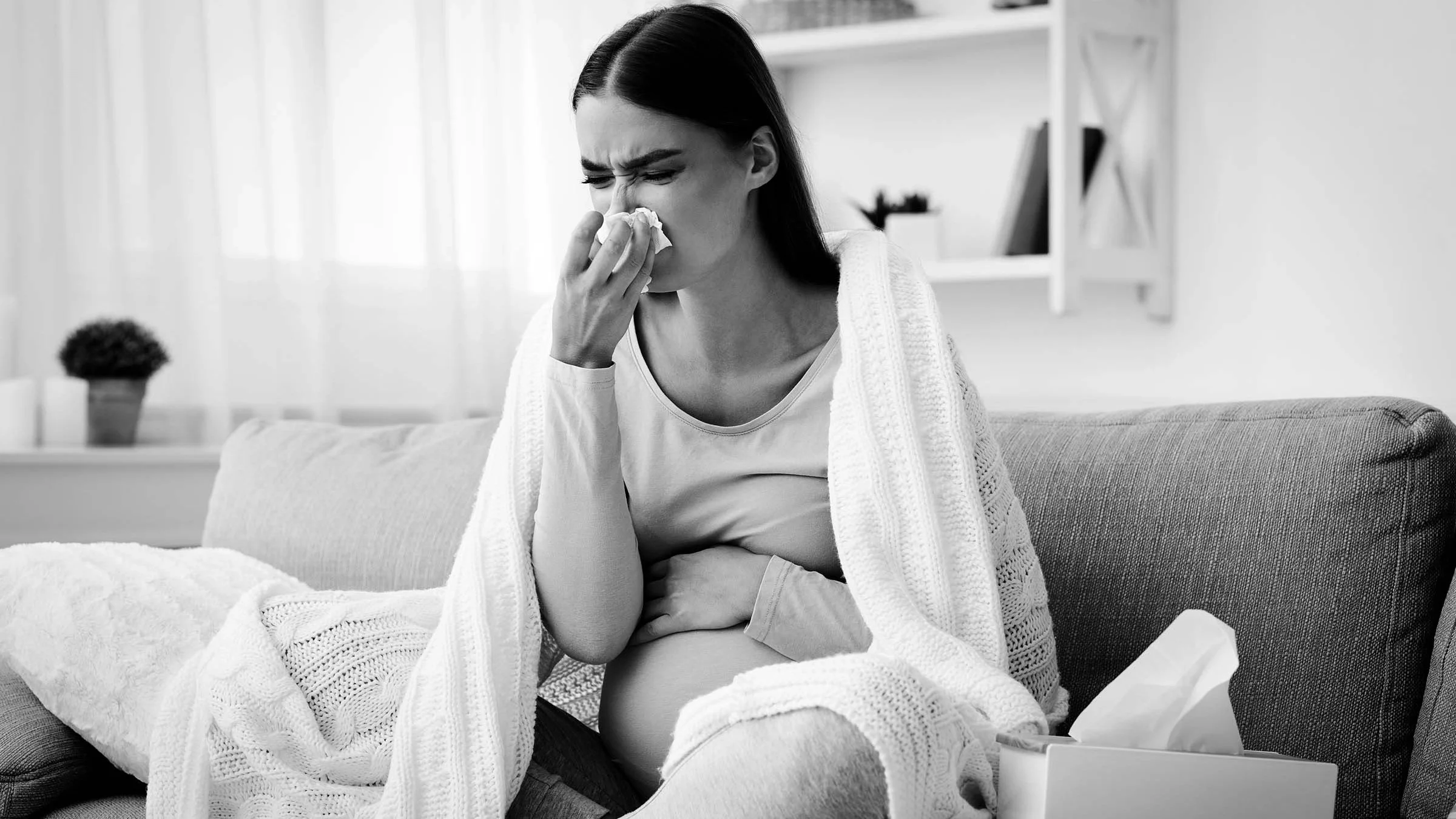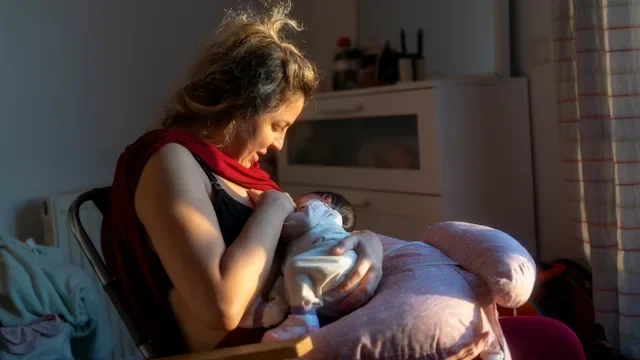Key takeaways:
During pregnancy 1 in 5 people develop a stuffy nose, or “gestational rhinitis,” even though they aren’t sick.
Pregnancy-related nasal congestion can contribute to sleep-disordered breathing, which is linked to a number of medical conditions — including conditions that could affect the baby.
Gestational rhinitis is best treated without medications, but sometimes it needs over-the-counter or prescription treatments.
Save on related medications
Pregnancy causes many changes in the body, and some of them are unexpected. One unpleasant change that many pregnant people experience is a stuffy nose.
Pregnancy rhinitis, or gestational rhinitis, is the name for the stuffy nose that occurs during pregnancy — and happens even when you aren’t sick. Keep reading to find out more about rhinitis during pregnancy, who suffers from it, and what to do if it’s a problem for you.
Who gets pregnancy or gestational rhinitis?
Many people (1 in 5) experience a stuffy nose during pregnancy — even people who don’t normally struggle with allergies or nasal congestion.
Search and compare options
Gestational rhinitis only happens in people who are pregnant. It typically starts during the second trimester of pregnancy and can last all the way through to delivery. After the baby is born, gestational rhinitis usually gets better on its own. If it doesn’t, something else may be going on. A visit to your provider can help clear things up.
It’s not clear why some pregnant people get gestational rhinitis and others don’t. It doesn’t seem to be related to asthma or most other allergic diseases. But researchers have identified a few factors that seem to go along with an increased risk for gestational rhinitis, including:
Cigarette smoking
Dust mite allergy
In addition, gestational rhinitis is linked to obstructive sleep apnea (OSA) during pregnancy. OSA makes it difficult to breathe through the nose during sleep, and it’s strongly linked to body weight. Excess weight gain in pregnancy can worsen the problem of rhinitis during pregnancy.
What causes gestational rhinitis?
The hormones of pregnancy cause changes all over your body — including inside your nose. These hormones cause:
The lining of your nose to thicken
The blood vessels in your nose to get larger
These changes cause swelling and a feeling of stuffiness inside your nose. Most of the time, gestational rhinitis doesn’t cause your nose to run — it just gets congested. If you get a runny nose during pregnancy, it’s more likely from allergies or a cold.
Will gestational rhinitis affect my baby?
Usually gestational rhinitis is mild. If it doesn’t impact your life — that is, if you can still sleep well and you don’t need to take medications for it — it shouldn’t affect your baby. That said, there are times when it can have an impact.
Sleep is extremely important during pregnancy, and gestational rhinitis can keep you from getting the sleep you need. That’s because having trouble breathing through your nose at night is one factor in sleep-disordered breathing. Morning headaches, daytime sleepiness, snoring, and gasping for air during sleep are other symptoms of sleep-disordered breathing.
Sleep-disordered breathing can happen at any stage of life, but it’s a particular problem during pregnancy. Research has linked sleep-disordered breathing to a list of pregnancy complications, including:
Preeclampsia
Gestational hypertension
Gestational diabetes
Cardiovascular disease
Low birth weight
If your gestational rhinitis is causing problems with your sleep, it’s worth talking to your healthcare provider about finding a solution.
How can I get rid of gestational rhinitis?
The safest approaches to gestational rhinitis don’t involve medications. Many pregnant people find they get relief by:
Elevating the head of the bed to 30 degrees
Rinsing the inside of the nose with a saline wash before sleep
Using nasal strips (such as Breathe-Right) to open the nostrils at night
Using a continuous positive airway pressure (CPAP) machine for sleep
When medications are necessary, it’s important to think about how they could affect your baby. Even nasal sprays like oxymetazoline (Afrin) contain medicine that could be harmful. Check with your healthcare provider before using any medication during pregnancy.
Medications used for gestational rhinitis include:
Some over-the-counter antihistamines, such as diphenhydramine (Benadryl)
Some prescription antihistamines, such as loratadine (Claritin) or cetirizine (Zyrtec)
Certain nasal steroid sprays, such as budesonide (Rhinocort)
The bottom line
Pregnancy rhinitis is a common problem that occurs because of the natural changes that take place in the body during pregnancy. When it’s mild, pregnancy rhinitis can often be handled without medications, but sometimes it can cause bigger problems. In these cases, you might need prescription medication or other treatments. Be sure to talk with your provider before taking any medication during pregnancy.

Why trust our experts?


References
Caparroz, F. A., et al. (2016). Rhinitis and pregnancy: Literature review. Brazilian Journal of Otorhinolaryngology.
Ellegård, E. K. (2006). Pregnancy rhinitis. Immunology and Allergy Clinics of North America.
Goldstein, G., et al. (2012). Rhinologic issues in pregnancy. Allergy & Rhinology (Providence, R.I.).
Izci-Balserak, B., et al. (2010). Sleep-disordered breathing and pregnancy: potential mechanisms and evidence for maternal and fetal morbidity. Current Opinion in Pulmonary Medicine.














